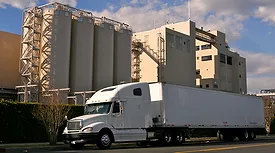Home » Keywords: » supply chain
Items Tagged with 'supply chain'
ARTICLES
The electronics industry is in a transformative state with companies and consumers beginning to take advantage of AI.
Read More
Sustainability and Smart Manufacturing in Building Products Supply Chains
Priorities that power the triple bottom line of social, environmental and financial performance are gaining momentum.
November 13, 2025
Key Trends and Technologies Powering Distribution Success
Data-integrated, highly automated hubs deliver speed, accuracy, and bottom-line impact.
September 17, 2025
Elevating the Role of Distributors in Technical Support and Value-Added Services
The president and CEO of the Alliance for Chemical Distribution discusses how distributors are meeting the rising demand for specialized services and expertise.
September 11, 2025
2025 Raw Materials and Chemicals Overview
A dominant theme for the raw materials landscape in 2024 and 2025 is the trend of moderating inflation and continued growth.
August 18, 2025
Keep the info flowing with our newsletters!
Get the latest industry updates tailored your way.
JOIN TODAY!Copyright ©2026. All Rights Reserved BNP Media.
Design, CMS, Hosting & Web Development :: ePublishing









.webp?height=168&t=1710891121&width=275)